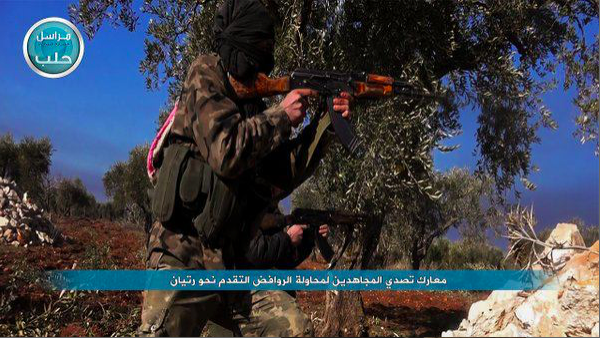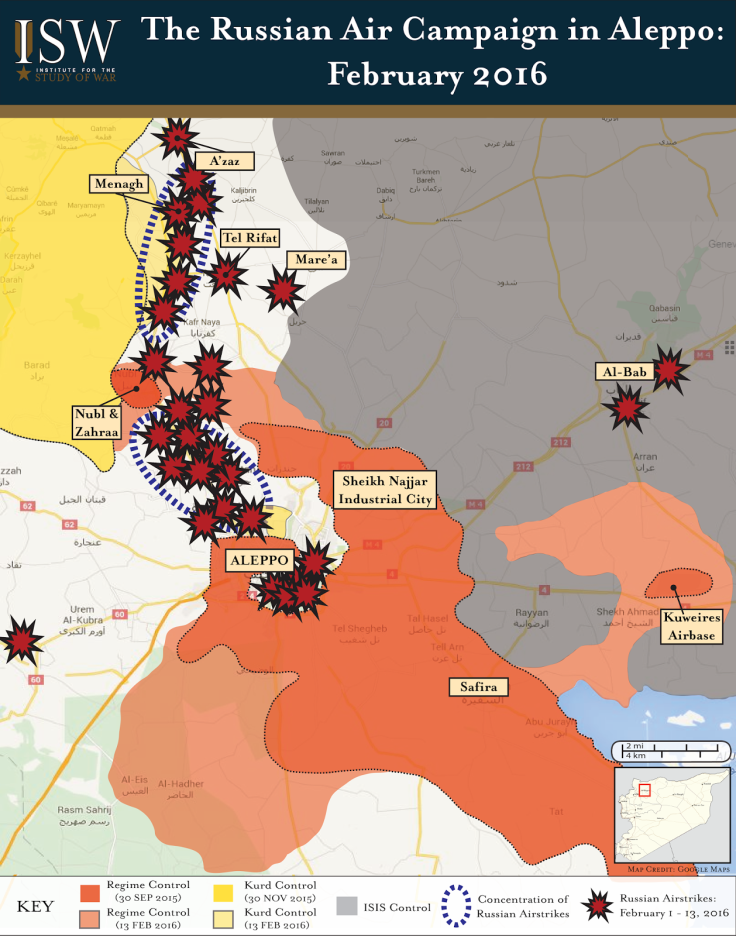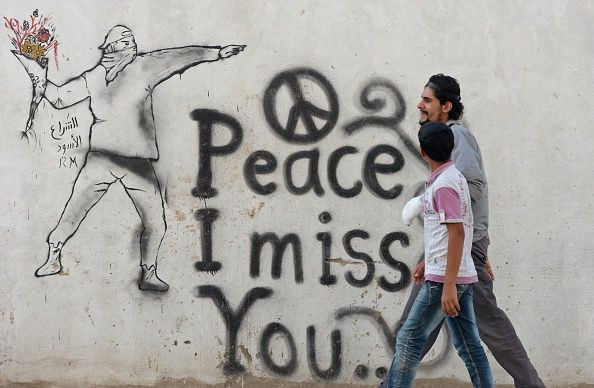In Syria, International Powers Are Bombing And Shelling Their Way To A National Ceasefire
BEIRUT — Turkey, Russia, the United States, Saudi Arabia and the Gulf States: All have a vested interest in how Syria's bloody civil war plays out on an expanding international stage, but none has the political will to end it.
Last week's announcement from Secretary of State John Kerry and Russian Foreign Minister Sergei Lavrov that a ceasefire had, in principle, been agreed on — allowing the passage of humanitarian aid to Syria's besieged towns and cities — was followed, in a matter of days, by a series of aerial bombardments, which proved that everything is, quite literally, still in the air.
Over the weekend, Turkey was accused of shelling Kurdish positions in Azaz, on the Syrian border, which the country has since confirmed. A Turkish official told reporters Tuesday that it would willingly participate in a full-scale intervention if it was part of a joint effort by its allies.
Meanwhile, Russian airstrikes continued apace: At least 50 people were killed Monday when a series of missiles hit several schools and medical facilities in Syria's northwestern Idlib province.
“These crimes would undermine all chances of reaching a political settlement to the conflict,” the Syrian National Coalition said in a statement Monday. “The continued silence over Russia’s behavior in Syria undoubtedly represents complicity in these crimes and would ruin what has been achieved in [ceasefire talks.]”

The following day, the United Nations concluded that Russia’s missiles, which hit several schools and medical facilities, including a hospital backed by Doctors Without Borders, leaving roughly 40,000 people without medical care, were deliberate and could amount to war crimes. Moscow rejected this claim, and instead, accused Turkey of undermining the ceasefire plan, Russian Foreign Ministry spokeswoman Maria Zakharova told state-run TV channel RT.
Embattled Syrian President Bashar Assad, who spoke in televised comments Tuesday, was quick to defend the continued attacks by the regime and its Russian allies: "A ceasefire, a halt to operations, if it happens, it doesn't mean that each party will stop using weapons. A ceasefire means in the first place stopping the terrorists from strengthening their position. Movement of weapons, equipment, terrorists, or fortification of positions, will not be allowed.”
For Assad and his Russian and Iranian-backed allies, any opposition group is a terrorist organization. Moscow’s airstrikes in Syria have helped pro-regime forces on the ground make significant gains over opposition-held areas over the last few months, including almost entirely encircling Syria’s largest city, Aleppo. But the airstrikes are not only targeting fighters — a point that could negate the entire premise of a ceasefire.
A recent report from the Institute for the Study of War, a U.S. think tank, suggests that a ceasefire would be "a big win for the Russians and the Syrian regime.” It would give them sufficient time, the report says, "to consolidate and prepare for further advances while preventing the opposition that the U.S. ostensibly supports from attempting to undo any of their gains.”

Others remain just as skeptical that the proposed ceasefire will assist those it has proclaimed to help — Syria's starving and increasingly desperate citizens. Last month, Russian airstrikes killed at least 679 civilians, according to the Syrian Network For Human Rights, and this month has so far been just as deadly.
“Russia has become the No. 1 killer of civilians in Syria, killing more than the Assad regime, al Qaeda and ISIS combined,” James Sadri , an official with the Syria Campaign, an advocacy group pushing for a no-fly zone, said in a written statement.
The Kremlin's media machine has been just as quick to stymie any ceasefire prospects, accusing Turkey of escalating the conflict with its continued attacks on Syria's Kurdish militias, who are aligned with Kurdish groups within Turkey.
“Russian [media says they have] reason to believe Turkey is preparing an intervention,” said Chris Kozak , a Syria analyst at the Institute for the Study of War, adding that Russia is “baiting Turkey to do it. It’s reflexive control. Turkish intervention in Syria will put them in direct confrontation with Russia.”
What began as an anti-government protest in Syria in 2011 has now become a platform for international powers to battle out geopolitical goals. For many, an escalation rather than a cessation of hostilities seems more likely in the coming days.
“If this proposed ceasefire doesn’t stop Russian warplanes from bombing hospitals and schools, then the U.S. and others shouldn’t pretend it [is one],” Sadri said.

© Copyright IBTimes 2024. All rights reserved.






















